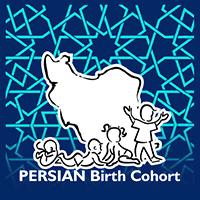Related Links
International Birth Cohorts:
- http://www.proyectoinma.org/presentacion-inma/en_diseno.html
- INMA – INfancia y Medio Ambiente [Environment and Childhood] Project is
a research network of several Spanish groups that created a project with the
aim to study the paper of the more relevant environmental pollutants in the
air, water and diet during the pregnancy and beginning of life, and their
effects in the growth and development
- http://www.southasianbirthcohort.com/Home
- This study is designed to understand why people of South Asian origin
(originating from India, Pakistan, Sri Lanka and Bangladesh) have an
increased risk for developing diabetes and heart disease
- http://growingupinscotland.org.uk/
- Growing Up in Scotland is the longitudinal research study tracking the
lives of thousands of children and their families from the early years,
through childhood and beyond. The main aim of the study is to provide new
information to support policy-making in Scotland but it is also intended to
provide a resource for practitioners, academics, the voluntary sector and
parents.
- http://www.borninbradford.nhs.uk/
- Born in Bradford is one of the biggest and most important medical
research studies undertaken in the UK. The project started in 2007 and is
looking to answer questions about our health by tracking the lives of 13,500
babies and their families and will provide information for studies across
the UK and around the world. The aim of Born in Bradford is to find out more
about the causes of childhood illness by studying children from all cultures
and backgrounds as their lives unfold.
- http://slovakchildren.ucdavis.edu/
- The goal of this study is to examine polychlorinated biphenyls (PCBs),
2,3,7,8-tetrachlorinated dibenzo-dioxin (TCDD), and dioxin-like toxic
equivalence (TEQ) exposures in relation to neurobehavioral and immunologic
development in children.
- http://www.elfe-france.fr/index.php/en/
- Elfe is the first longitudinal study of its kind in France, tracking
children from birth to adulthood. It will examine every aspect of these
children’s lives from the perspectives of health, social sciences and
environmental health. Covering the whole of metropolitan France, it was
launched in April 2011, in the wake of a pilot survey of 500 families that
began in 2007. Backed by the ministries in charge of research, health and
sustainable development, as well as by a number of leading research bodies
and other institutions, the Elfe study involves 150 researchers from more
than 80 research teams.
- http://www.lothianbirthcohort.ed.ac.uk/
- The Lothian Birth Cohorts of 1921 and 1936 are follow-up studies of the
Scottish Mental Surveys of 1932 and 1947. The surveys had, respectively,
tested the intelligence of almost every child born in 1921 or 1936 and
attending school in Scotland in the month of June in those years. Therefore,
tracing, recruiting and re-testing people who had taken part in the Surveys
offered a rare opportunity to examine the distribution and causes of
cognitive ageing across most of the human life course.
- http://research.ncl.ac.uk/gms/
- The Gateshead Millennium Study (or GMS) is a long-term research project
looking at child health in north-east England. 1029 children and their
families joined the study in 1999, and they continue to help us learn more
about growth and development in childhood. The study is run from the Human
Nutrition Research Centre in the Institute of Health & Society at Newcastle
University, together with colleagues at the University of Strathclyde.
- http://www.bristol.ac.uk/alspac/
- Avon Longitudinal Study of Parents and Children, Children of the 90s is
a long-term health research project that started in the early 1990s. It
recruited more than 14,000 pregnant women, and these women and their
families have been involved ever since. The Children of the 90s project
works with researchers all over the world.
- http://www.abdn.ac.uk/seatonstudy/
- The SEATON study was designed to answer the question "Does mother's diet
during pregnancy affect her unborn child's risk for getting asthma and
allergies?".
![]()




